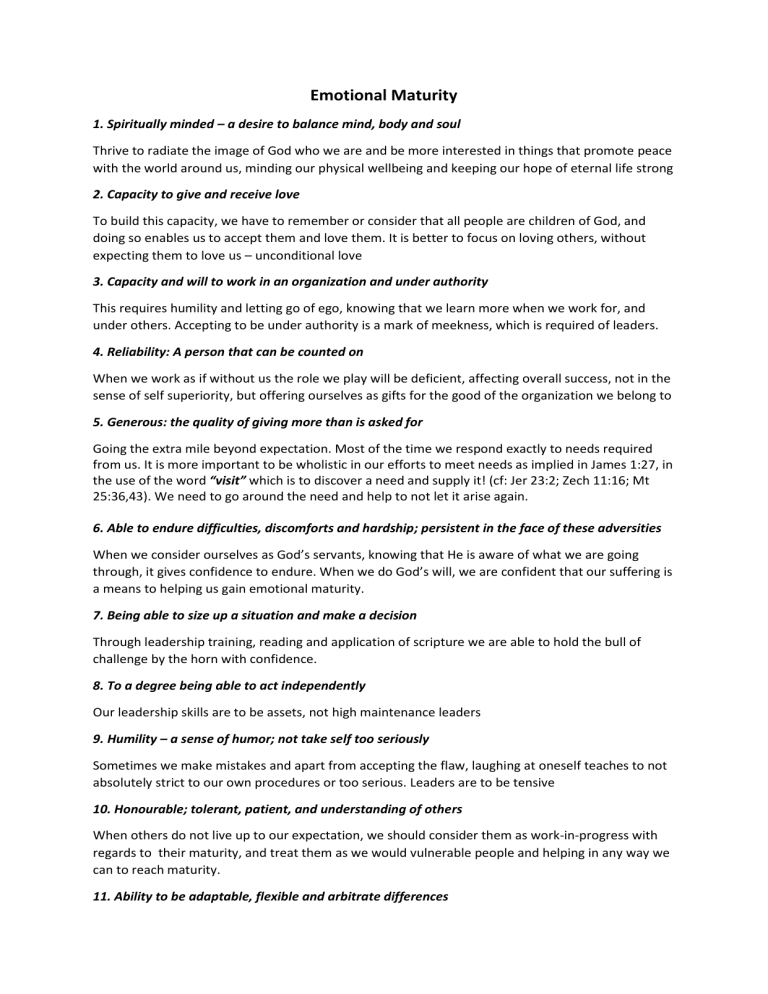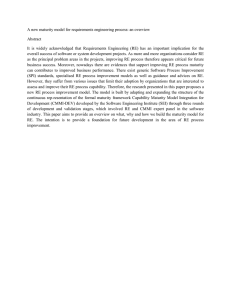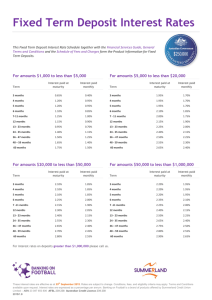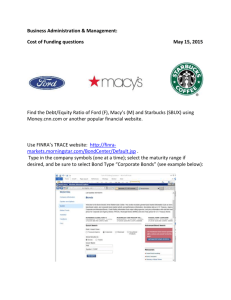
Emotional Maturity 1. Spiritually minded – a desire to balance mind, body and soul Thrive to radiate the image of God who we are and be more interested in things that promote peace with the world around us, minding our physical wellbeing and keeping our hope of eternal life strong 2. Capacity to give and receive love To build this capacity, we have to remember or consider that all people are children of God, and doing so enables us to accept them and love them. It is better to focus on loving others, without expecting them to love us – unconditional love 3. Capacity and will to work in an organization and under authority This requires humility and letting go of ego, knowing that we learn more when we work for, and under others. Accepting to be under authority is a mark of meekness, which is required of leaders. 4. Reliability: A person that can be counted on When we work as if without us the role we play will be deficient, affecting overall success, not in the sense of self superiority, but offering ourselves as gifts for the good of the organization we belong to 5. Generous: the quality of giving more than is asked for Going the extra mile beyond expectation. Most of the time we respond exactly to needs required from us. It is more important to be wholistic in our efforts to meet needs as implied in James 1:27, in the use of the word “visit” which is to discover a need and supply it! (cf: Jer 23:2; Zech 11:16; Mt 25:36,43). We need to go around the need and help to not let it arise again. 6. Able to endure difficulties, discomforts and hardship; persistent in the face of these adversities When we consider ourselves as God’s servants, knowing that He is aware of what we are going through, it gives confidence to endure. When we do God’s will, we are confident that our suffering is a means to helping us gain emotional maturity. 7. Being able to size up a situation and make a decision Through leadership training, reading and application of scripture we are able to hold the bull of challenge by the horn with confidence. 8. To a degree being able to act independently Our leadership skills are to be assets, not high maintenance leaders 9. Humility – a sense of humor; not take self too seriously Sometimes we make mistakes and apart from accepting the flaw, laughing at oneself teaches to not absolutely strict to our own procedures or too serious. Leaders are to be tensive 10. Honourable; tolerant, patient, and understanding of others When others do not live up to our expectation, we should consider them as work-in-progress with regards to their maturity, and treat them as we would vulnerable people and helping in any way we can to reach maturity. 11. Ability to be adaptable, flexible and arbitrate differences Presenting our body as a sacrifice removes all barriers to our fulfilling God’s mission. In handling differences we should use wisdom from the scriptures and make solutions or conflict management as simple and adaptable as possible When procedures we prescribe are challenging there is nothing wrong in varying to ensure goal achievement. 12. Ability to stick to a job and finish it; stable; determination and will to succeed Self-motivation is key to finishing a job. This comes through the value we place on the project, seeing the benefits even before completion


